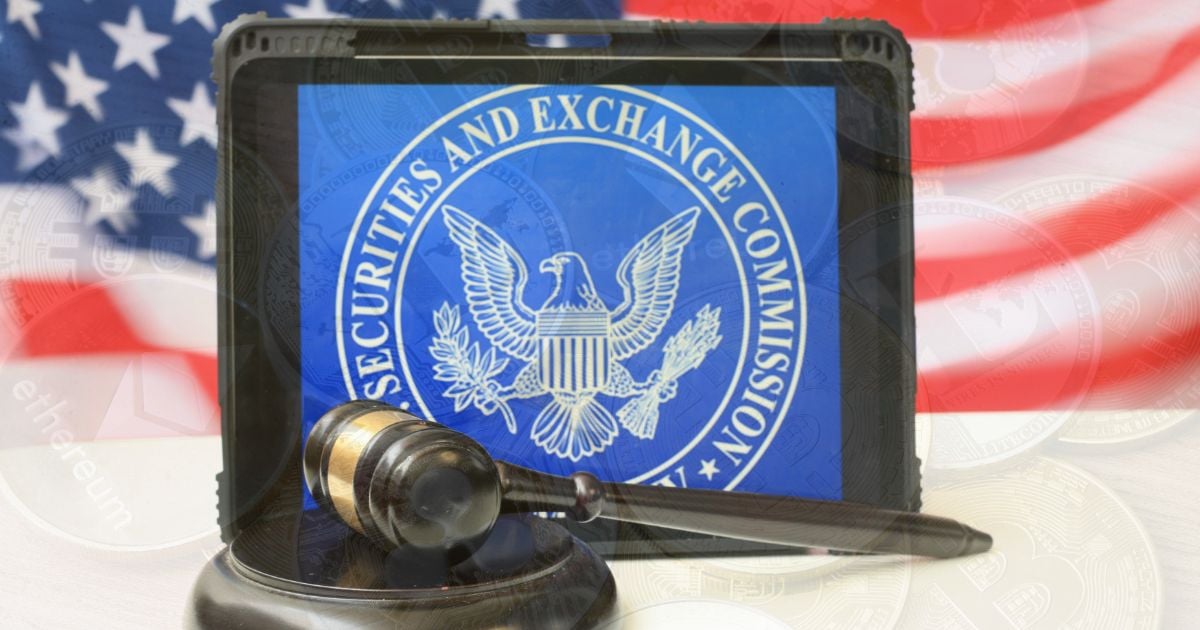
The U.S. Securities and Exchange Commission (SEC) sued cryptocurrency platform Coinbase yesterday, the second lawsuit in two days against a major crypto exchange, in a dramatic escalation of a crackdown that will no doubt transform a market that has largely operated outside regulation.
The SEC has alleged that at least 13 crypto assets available to Coinbase customers were considered “crypto asset securities” by the regulator. Those assets include Solana’s SOL token, Cardano’s token and Protocol Labs’ Filecoin token.
“We allege that Coinbase, despite being subject to the securities laws, commingled and unlawfully offered exchange, broker-dealer, and clearinghouse functions,” SEC Chair Gary Gensler said in a statement.
Coinbase’s chief legal officer Paul Grewal told CNBC in a statement “The SEC’s reliance on an enforcement-only approach in the absence of clear rules for the digital asset industry is hurting America’s economic competitiveness and companies like Coinbase that have a demonstrated commitment to compliance. The solution is legislation that allows fair rules for the road to be developed transparently and applied equally, not litigation. In the meantime, we’ll continue to operate our business as usual.”
Allegations Against Binance
On Monday, the SEC charged Binance, the world's largest cryptocurrency exchange, with a variety of securities law violations. The SEC accused Binance of inflating trading volumes, diverting customer funds, improperly commingling assets, failing to restrict U.S. customers from its platform, and misleading customers about its controls.
“Through thirteen charges, we allege that Zhao and Binance entities engaged in an extensive web of deception, conflicts of interest, lack of disclosure, and calculated evasion of the law,” said SEC Chair Gary Gensler.
The SEC said Coinbase has since at least 2019 made billions of dollars by operating as a middleman on crypto transactions, while evading disclosure requirements meant to protect investors. The SEC said Coinbase traded at least 13 crypto assets that are securities that should have been registered, including tokens such as Solana, Cardano and Polygon.
Binance pledged to vigorously defend itself against the lawsuit, which it said reflected the SEC's "misguided and conscious refusal" to provide clarity to the crypto industry. Binance said “We will work alongside industry partners to defend this important technology from misguided lawsuits. And we will maintain our unceasing efforts to deliver a safe and trusted platform for our users that holds true to our core value of furthering the freedom of money.”
Potential Impact on the Crypto Ecosystem
If successful, the lawsuits could transform the crypto market by successfully asserting the SEC's jurisdiction over an industry that for years has argued that tokens do not constitute securities and should not be regulated by the SEC.
While the two cases are different, but overlap, they both point to the SEC's desire to bring cryptocurrencies under the jurisdiction of the federal securities laws.
Securities, as opposed to other assets such as commodities, are strictly regulated and require detailed disclosures to inform investors of potential risks. The Securities Act of 1933 outlined a definition of the term "security," yet many experts rely on two U.S. Supreme Court cases to determine if an investment product constitutes a security. SEC Chair Gary Gensler has long said tokens constitute securities and has steadily asserted its authority over the crypto market, focusing initially on the sale of tokens and interest-bearing crypto products. More recently, it has taken aim at unregistered crypto broker dealer, exchange trading and clearing activity.
While a few crypto companies are licensed as alternative system trading systems, a type of trading platform used by brokers to trade listed securities, no crypto platform operates as a full-blown stock exchange.
The SEC's lawsuits are the latest development in a series of high-profile blows to the industry following the collapse of FTX. Several smaller crypto exchanges, such as Kraken, have faced similar legal battles with the SEC so far this year. The SEC also this year sued Beaxy Digital and Bittrex Global for failing to register as an exchange, clearing house and broker.
Crypto companies refute that tokens meet the definition of a security, citing that the SEC's rules are ambiguous, and that the SEC is overstepping its authority in trying to regulate them. Still, many companies have boosted compliance, shelved products and expanded outside the country in response to the crackdown.
What happens next will be fascinating. If tokens are deemed as securities, the SEC would need to create a registration process for these tokens, but there's no precedent for something being deemed a security after already trading in markets for years. Exchanges like Coinbase may have to delist those tokens as well, which would have far-reaching impacts for crypto investors with a potentially significant portion of their liquidity disappearing.
Stay Updated With Bitvore Digital Asset Daily Alerts
If you are exploring the world of digital assets but you’re finding it difficult to keep up with everything that happens in the ever-changing asset class? Bitvore Digital Asset Daily Alerts can help.
Our clients uncover rich streams of risk and ESG insights from unstructured data that act as the perfect complement to internal data and the insights. Our solutions provide the ability to see further, respond faster, and capitalize more effectively without the need for additional code or systems.
It is estimated that 90% all data now sits in the universe of unstructured data. Get in touch today to learn how Bitvore’s solutions can help your organization drive the actionable intelligence you need, at info@bitvore.com or www.bitvore.com.

